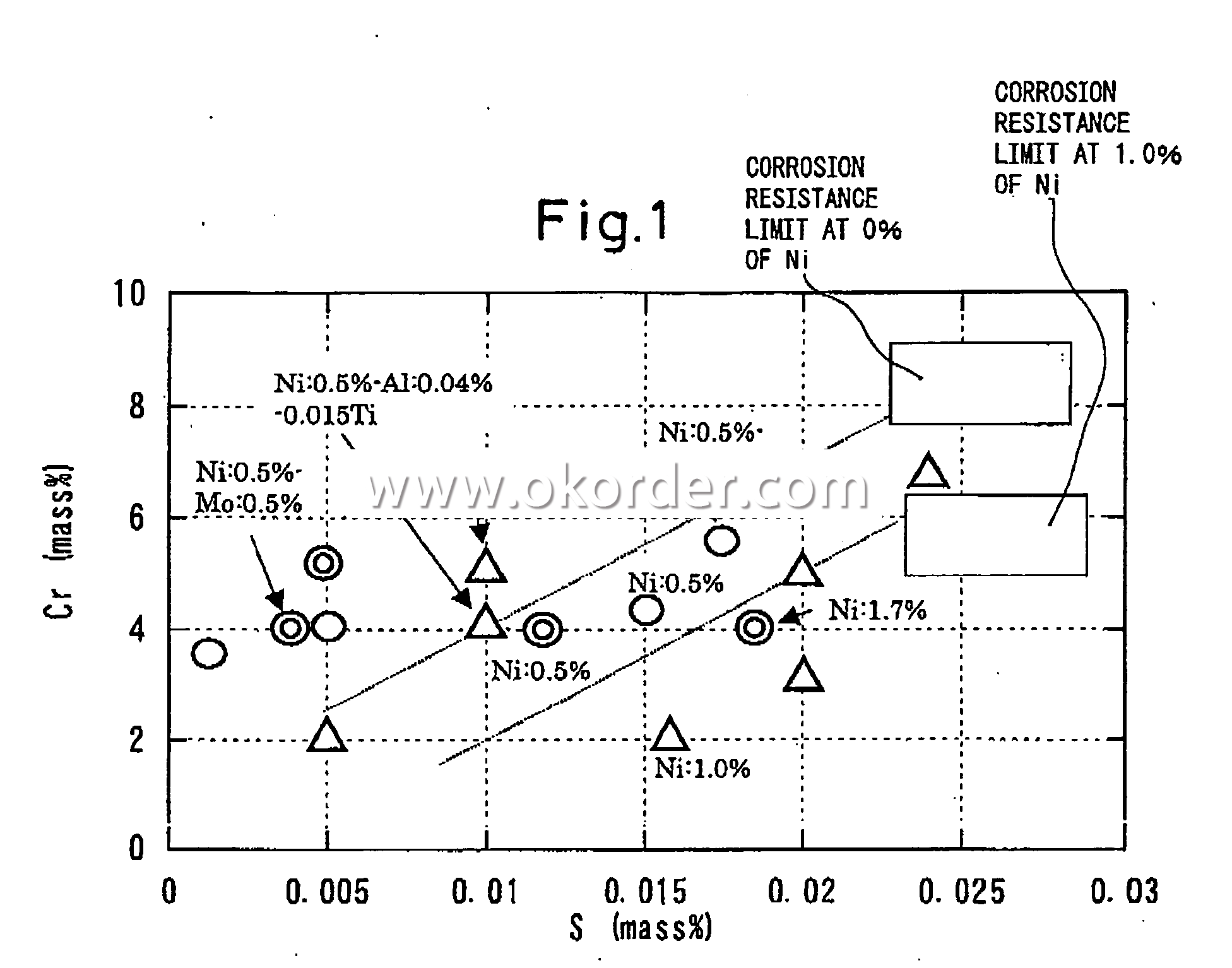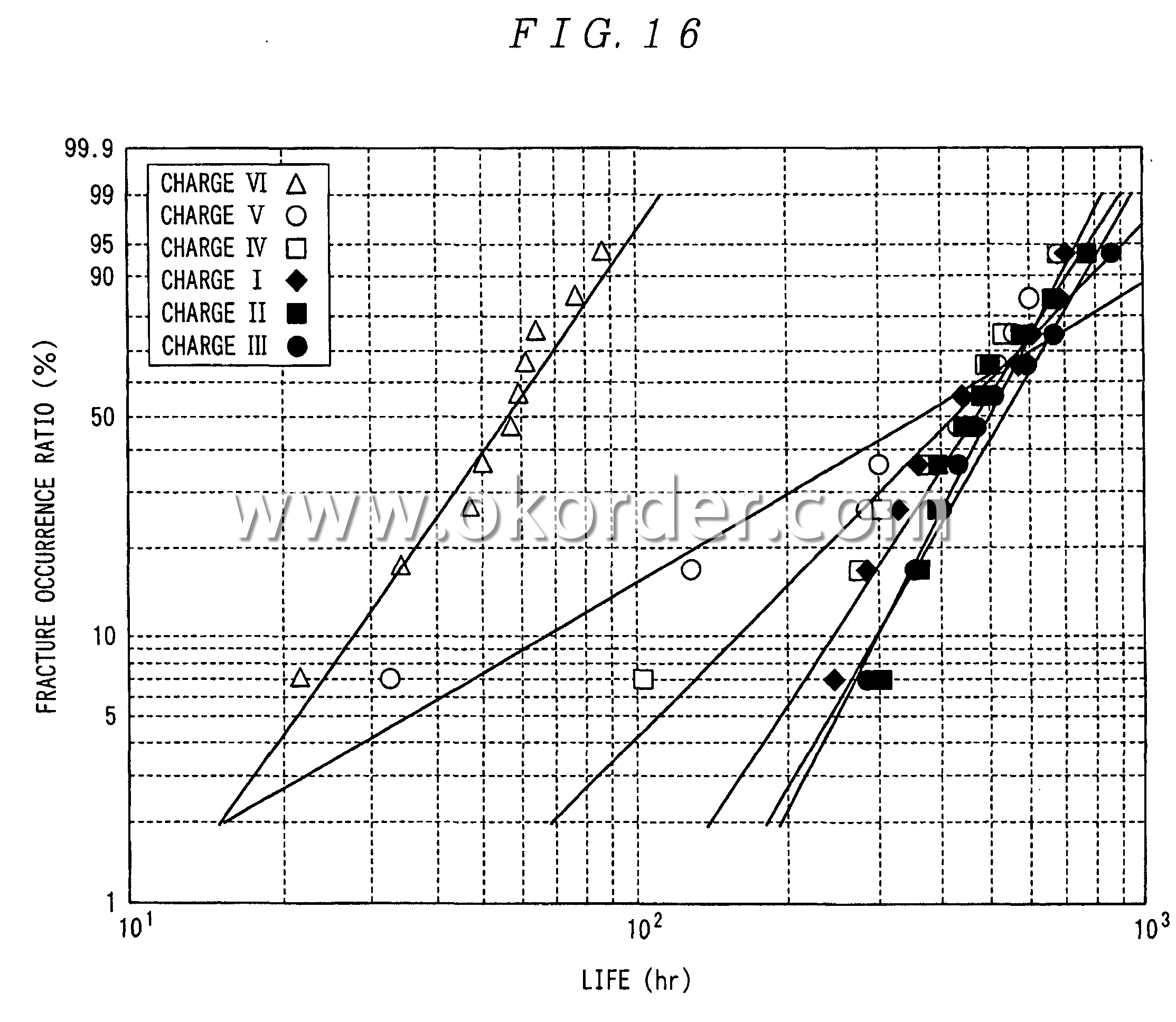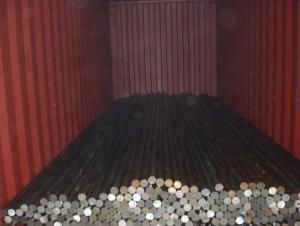Japanese Standard Bearing Steel
- Loading Port:
- Guangzhou
- Payment Terms:
- TT or LC
- Min Order Qty:
- 25MT m.t.
- Supply Capability:
- 600000 Tons/Year m.t./month
OKorder Service Pledge
OKorder Financial Service
You Might Also Like
Specifications of Japanese Standard Bearing Steel
|
Material |
SUJ2 | ||
|
Chemical Composition |
Mechanical Properties(In Quenched & Tempered State) | ||
|
C |
0.95-1.05 |
Hardness |
HRC≈67 |
|
Si |
0.15-0.35 |
HRC61-66 | |
|
Mn |
0.25-0.45 |
HRC62-66 | |
|
Cr |
1.40-1.65 |
-- | |
|
Mo |
≤0.10 |
-- | |
|
P |
≤0.025 |
HB170-207 | |
|
S |
≤0.025 |
HB207-229 | |
|
Cu |
≤0.25 |
HB270-390 | |
|
Ni+Cu |
≤0.50 |
HB229-285 | |
Dimension: Thickness: 20mm-1000mm, Length: 500mm-6000mm
Technique: Hot rolled, cold drawn, forged
Surface treatment: Black, grinding, bright, polish
Type: Alloy Steel Bar
Documents required: Commercial invoice; Packing list; Bill of lading; Certificate of origin and others that the target market needs.
Usage and Applications of Japanese Standard Bearing Steel
High Quality Bearing steel is used for manufacturing ball, roller bearing steel and rings. Bearing in work is under great pressure and friction, so have high demands bearing steel and hardness and resistance, and high elastic limit.
Bearing steels are used for ball and roller bearing applications and are comprised of low carbon steels and high carbon through harden able steel.
For example, bearing ring, steel rolling mill, machinery, 100Cr6 bearing steel ball is widely used in high-speed and low-noise bearing, bicycle, motorcycle, automobile, bags electronically.


Packaging & Delivery of Japanese Standard Bearing Steel
Packaging Detail: Standard seaworthy packing or as customer required.
Delivery Detail: 45 days
Trade terms: FOB, CFR, CIF
MOQ: 25 tons or at customer's demands
Weight: Theprice invoicing on theoretical weight basis or actual weight basis depends on customer’s request.
Shipment: The shipment of bulk break or container is depends on customer’s request.
Other equivalent steel materials of Japanese Standard Bearing Steel
|
USA |
Japanese |
Germany |
British |
France |
|
ASTM&AISI&SAE |
JIS |
EN DIN |
EN BS |
EN NF |
|
52100 |
SUj2 |
100Cr6 |
100Cr6 |
100Cr6 |
|
1.2067 |
1.2067 |
1.2067 |
Characteristics of Japanese Standard Bearing Steel
1. The technical workers we employed are the ones with many years’ working experience, who know the technology procedures very well.
2. We will strictly inspect our production that we sold according to the customer’s request.
3. Our steel reaches international quality standards. Besides, our company is equipped with large-sized vertical saw machines, horizontal saw machines, milling machines, grinding machines and other advanced equipment. All our products are carried out hardness tests, such as the ultrasonic flaw detection before shipment. Therefore, there is no quality problem. With more competitive price than other suppliers, our steel has good sales in the markets of North America, South America, East Europe, Southeast Asia, Africa, Oceania, the Middle East, East Asia and West Europe.
4. We can accept L/C usance or L/C at sight.
5. Quality should be in conformity with the specification of the manufacturer. Quantity and packing conditions should be in conformity with the term in this contract.
- Q:Can special steel be used in construction?
- Yes, special steel can definitely be used in construction. Special steel refers to steel alloys that have been specifically designed and manufactured to possess certain properties and characteristics that make them suitable for various applications, including construction. One of the most common types of special steel used in construction is known as structural steel. This type of steel is specifically designed to have higher strength, durability, and flexibility compared to regular carbon steel. Structural steel is often used in the construction of buildings, bridges, and other infrastructure projects due to its ability to withstand heavy loads and resist external forces such as wind, earthquakes, and impact. Special steel also offers other advantages in construction. For example, stainless steel is commonly used in the construction of architectural features and building facades due to its corrosion resistance and aesthetic appeal. Additionally, weathering steel, which forms a protective rust-like coating when exposed to the elements, is often used in outdoor structures and bridges to eliminate the need for regular painting and maintenance. Furthermore, special steel can be tailored to meet specific requirements in construction projects. For instance, high-strength low-alloy (HSLA) steel is used in the construction of tall buildings and structures to reduce weight while maintaining structural integrity. This allows for more efficient use of materials and cost savings. In summary, special steel is widely used in construction due to its superior strength, durability, corrosion resistance, and other desirable properties. Its versatility allows for the optimization of construction projects, ensuring safety, longevity, and cost-effectiveness.
- Q:How does special steel contribute to reducing product recalls?
- Special steel plays a crucial role in reducing product recalls by offering enhanced durability and strength to various components and parts. Its superior properties, such as corrosion resistance, heat resistance, and high tensile strength, make it less prone to failure or breakage, ensuring the overall reliability and safety of the products. By using special steel in manufacturing processes, companies can mitigate the risk of product defects, resulting in fewer recalls and better customer satisfaction.
- Q:What are the challenges in casting special steel?
- Some of the challenges in casting special steel include achieving the desired composition and metallurgical properties, controlling the cooling rate to prevent the formation of defects such as cracks or porosity, ensuring uniformity and consistency in the casting process, and managing the high temperatures and corrosive environments involved. Special steel often requires precise and complex casting techniques, making it more challenging than casting regular steel. Additionally, special steel alloys may have specific requirements for heat treatment or post-casting processing, which adds further complexity to the casting process.
- Q:How does special steel contribute to the ductility of products?
- Special steel contributes to the ductility of products through its unique composition and manufacturing processes. Ductility refers to a material's ability to deform under stress without fracturing or breaking. In the case of special steel, its composition includes certain alloying elements that enhance its ductility. One way special steel contributes to ductility is by reducing the presence of impurities. Special steel is produced with strict quality control measures, ensuring that impurities such as sulfur and phosphorus are kept at low levels. These impurities can cause brittleness in steel, reducing its ductility. By minimizing their presence, special steel maintains its ductile properties, allowing it to deform without failure. Furthermore, special steel often contains specific alloying elements like nickel, chromium, and molybdenum. These alloying elements play a crucial role in enhancing ductility. For instance, nickel improves the toughness and ductility of steel by increasing its ability to absorb energy before fracture. Chromium, on the other hand, enhances resistance to corrosion and oxidation, thereby preserving the ductility of the steel. The manufacturing processes used to produce special steel also contribute to its ductility. Precise temperature control during the heat treatment of special steel can optimize the microstructure, resulting in improved ductility. Additionally, special steel can undergo various forming processes, such as hot or cold rolling, which further refine its microstructure and enhance its ductility. Overall, special steel's unique composition, low impurity levels, and specific alloying elements, combined with precise manufacturing processes, contribute significantly to its ductility. This makes it an excellent choice for products that require deformation without failure, such as automotive components, machinery parts, and structural applications.
- Q:What are the properties of weathering steel?
- Weathering steel, also known as Corten steel, possesses several key properties. Firstly, it has a high resistance to corrosion, making it suitable for outdoor applications. Secondly, it forms a protective layer of rust on its surface, which not only adds to its aesthetic appeal but also acts as a barrier against further corrosion. Additionally, weathering steel is durable and strong, making it suitable for various structural applications. Lastly, it has the ability to withstand extreme weather conditions, including high temperatures and heavy rainfall, without deteriorating.
- Q:How does special steel contribute to the automotive fuel efficiency?
- Special steel contributes to automotive fuel efficiency in several ways. Firstly, it allows for the construction of lighter and stronger components, such as the body frame and engine parts, which reduces the overall weight of the vehicle. A lighter vehicle requires less energy to accelerate and maintain speed, resulting in improved fuel efficiency. Secondly, special steel can be used to manufacture components with higher precision and tighter tolerances, minimizing friction and energy loss within the engine and drivetrain. Additionally, the use of special steel in exhaust systems helps to improve the efficiency of emissions control technologies, reducing the environmental impact of the vehicle. Overall, special steel plays a crucial role in enhancing fuel efficiency by enabling the production of lighter, stronger, and more efficient automotive components.
- Q:How is special steel used in the chemical industry?
- Special steel is used in the chemical industry primarily for its corrosion resistance, high temperature stability, and durability. It is widely utilized in the construction of chemical processing equipment, such as reactors, tanks, and pipelines, to withstand harsh and corrosive environments. Additionally, special steel alloys are employed in the production of catalysts, which are essential for various chemical reactions. Overall, special steel plays a crucial role in ensuring the safety, efficiency, and longevity of chemical processes within the industry.
- Q:Can special steel be used in the production of gears?
- Yes, special steel can be used in the production of gears. Special steel, such as alloy steel or tool steel, is often preferred in gear manufacturing due to its high strength, wear resistance, and ability to withstand heavy loads and high temperatures. This steel type ensures gears have the necessary durability and performance required for various applications.
- Q:How is special steel used in the telecommunications industry?
- Special steel is used in the telecommunications industry for various applications, such as the construction of transmission towers, antenna supports, and satellite equipment. Its high strength, corrosion resistance, and durability make it ideal for withstanding harsh environmental conditions and ensuring the stability and reliability of telecommunications infrastructure.
- Q:How is special steel used in the production of automotive springs?
- Special steel is used in the production of automotive springs due to its unique properties that make it ideal for this application. Automotive springs, such as suspension springs and valve springs, need to be able to withstand heavy loads, repetitive stress, and high temperatures. Special steel, also known as alloy steel, is specifically designed to have enhanced mechanical properties compared to regular steel. It is typically made by adding additional alloying elements such as chromium, nickel, or molybdenum to improve its strength, hardness, and resistance to wear and fatigue. In the production of automotive springs, special steel is used to create springs that can handle the demanding conditions of the vehicle's suspension system. These springs must be able to absorb and distribute the weight of the vehicle, while also providing a smooth and comfortable ride. The high strength of special steel allows automotive springs to withstand heavy loads without deforming or breaking. This is crucial to ensure the stability and safety of the vehicle, especially during rough road conditions or when carrying heavy loads. Moreover, special steel's resistance to fatigue is essential in the production of automotive springs. These springs undergo millions of cycles of compression and expansion during the vehicle's lifetime. The fatigue resistance of special steel ensures that the springs can maintain their performance and reliability over an extended period. Additionally, special steel's resistance to wear and corrosion is beneficial in automotive applications. Springs are exposed to various environmental elements, such as moisture, dirt, and chemicals, which can lead to corrosion and degradation. Special steel's corrosion resistance helps to prolong the lifespan of automotive springs and maintain their functionality. In summary, the use of special steel in the production of automotive springs ensures that these critical components can withstand heavy loads, repetitive stress, and high temperatures. Its enhanced mechanical properties, including strength, fatigue resistance, and corrosion resistance, make it an ideal material choice for automotive springs, contributing to the overall performance and durability of vehicles.
1. Manufacturer Overview |
|
|---|---|
| Location | Guangdong, China |
| Year Established | 2005 |
| Annual Output Value | Above US$ 100 Million |
| Main Markets | korea, India, Malaysia, Brazil, Germany, Belgium, Middle East |
| Company Certifications | |
2. Manufacturer Certificates |
|
|---|---|
| a) Certification Name | |
| Range | |
| Reference | |
| Validity Period | |
3. Manufacturer Capability |
|
|---|---|
| a)Trade Capacity | |
| Nearest Port | Guangzhou |
| Export Percentage | 50%-80% |
| No.of Employees in Trade Department | 21-100 People |
| Language Spoken: | English; Chinese |
| b)Factory Information | |
| Factory Size: | 23,000 square meters |
| No. of Production Lines | 1 |
| Contract Manufacturing | OEM servise offered |
| Product Price Range | high; average |
Send your message to us
Japanese Standard Bearing Steel
- Loading Port:
- Guangzhou
- Payment Terms:
- TT or LC
- Min Order Qty:
- 25MT m.t.
- Supply Capability:
- 600000 Tons/Year m.t./month
OKorder Service Pledge
OKorder Financial Service
Similar products
New products
Hot products
Related keywords






























